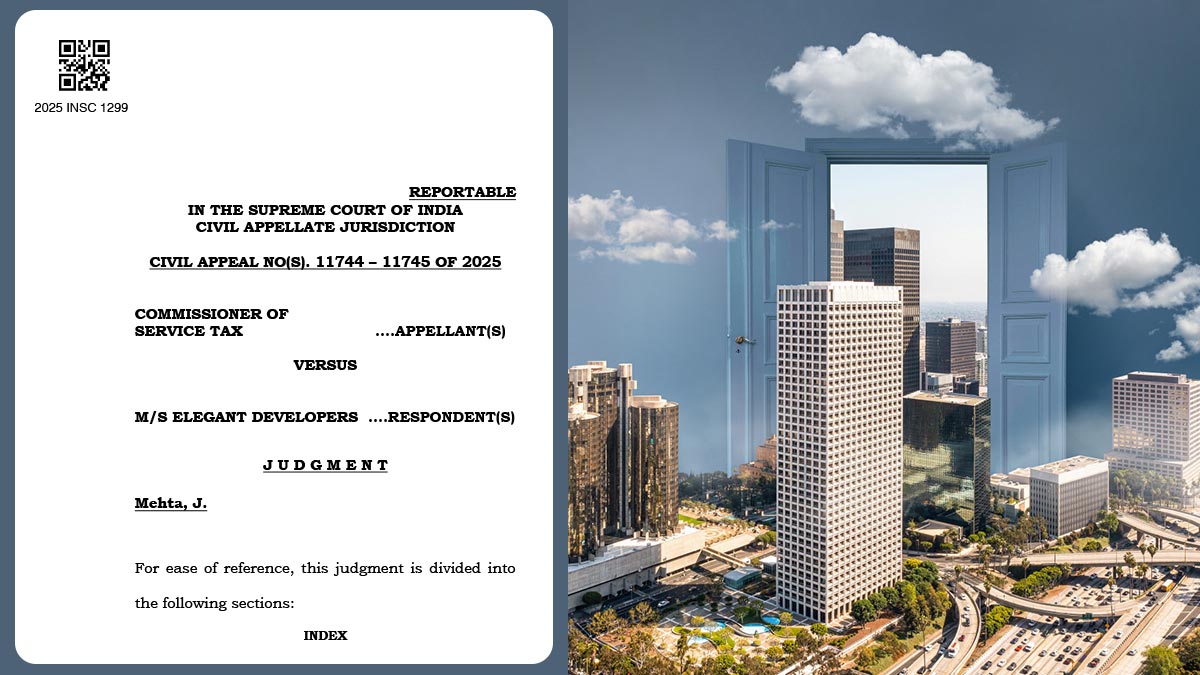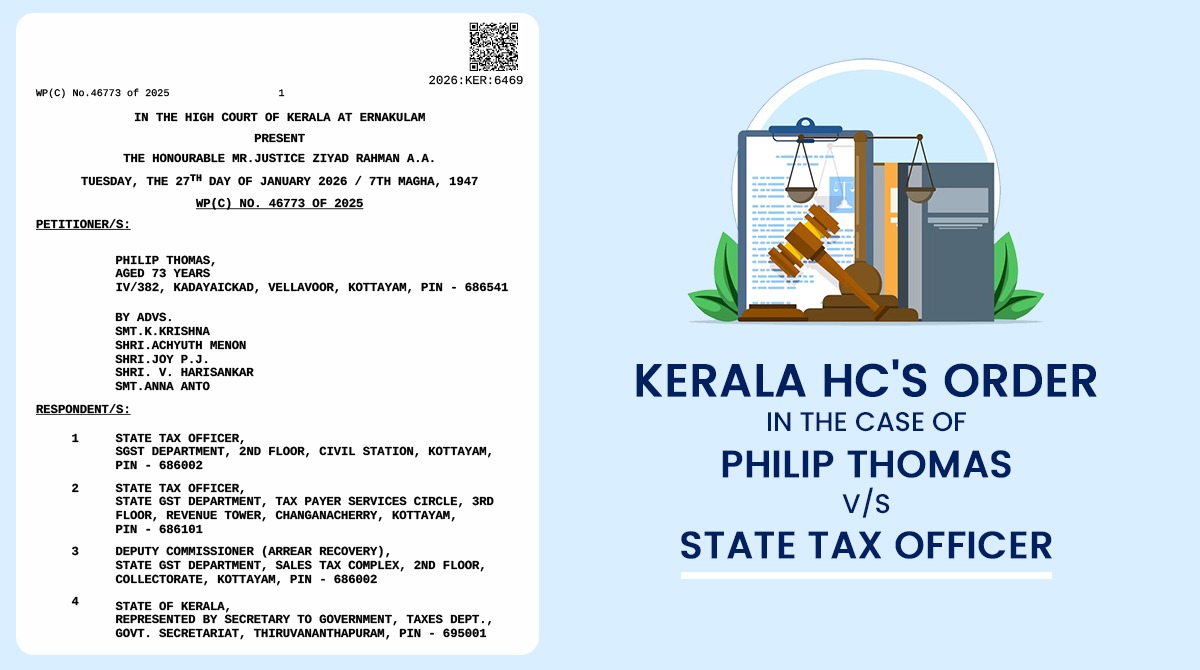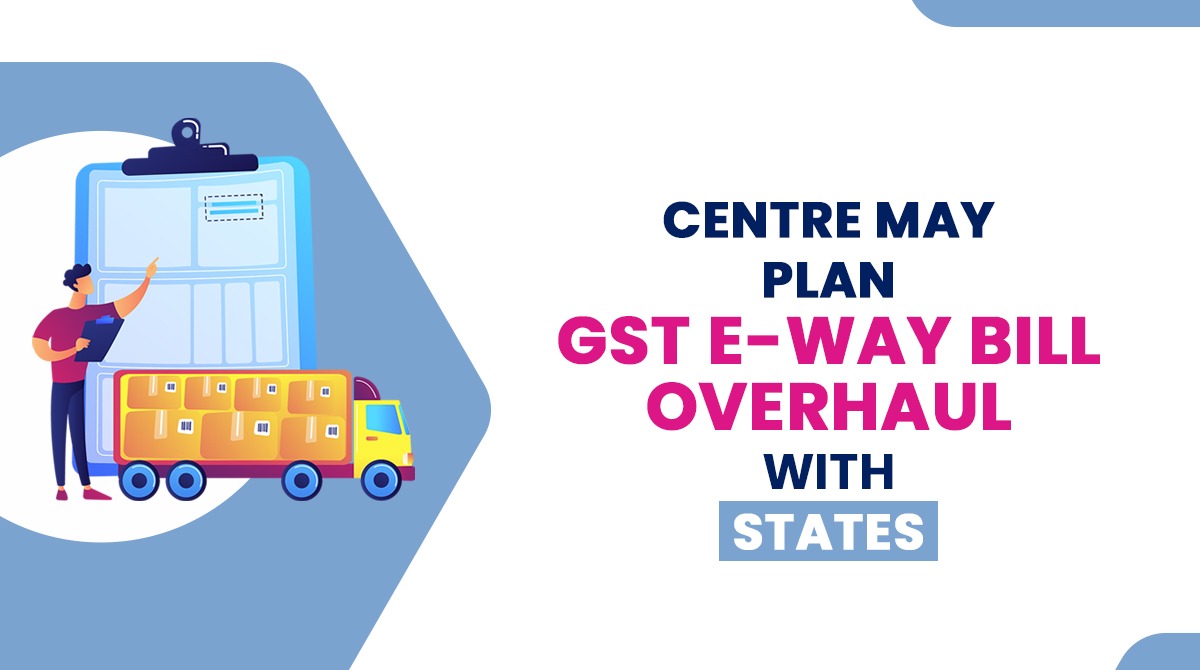
The Supreme Court has stated that an activity which concerns the transfer of title in immovable property by way of sale could not be treated as a “service” under the Finance Act, 1994. Therefore, such transactions are not within the ambit of service tax.
A judgment was delivered by a bench of Justices J.B. Pardiwala and Sandeep Mehta, which dismissed an appeal brought forth by the Commissioner of Service Tax in New Delhi. The appeal was against M/s Elegant Developers, a partnership firm located in Allahabad. The Revenue had challenged a ruling from 2019 issued by the Customs, Excise and Service Tax Appellate Tribunal (CESTAT), which had overturned a tax demand exceeding ₹10 crore imposed on the firm.
The Department has alleged that Elegant Developers provided taxable services as a real estate agent to Sahara India Commercial Corporation Ltd. (SICCL) in connection with the acquisition and development of substantial land parcels across multiple states. In contrast, Elegant Developers contends that its dealings with SICCL pertain to the buying and selling of land, rather than to consultancy or brokerage services, and as such, these transactions should not be subject to service tax.
Dispute Background
Elegant Developers, between 2002 and 2005, entered into three Memoranda of Understanding (MOUs) with SICCL for the purchase of land in Sri Ganganagar (Rajasthan), Vadodara (Gujarat), and Kurukshetra (Haryana). The firm under such agreements undertook to procure contiguous tracts of land, ensure proper title, and bring the landowners before the registering authorities for the implementation of sale deeds in favour of SICCL.
SICCL considered paying the firm a fixed average rate per acre, which was inclusive of the cost of land and development expenses. The profit or loss of the firm was determined by the difference between what it paid individual landowners and the fixed rate it received from SICCL. It is important to note that the firm assumed all financial risk. If land prices increased, the firm incurred a loss; if prices decreased, it kept the difference as profit.
Subsequently, the Directorate General of Central Excise Intelligence (DGCEI) began the proceedings based on the fact that Elegant Developers had rendered services of acquisition and development of real estate for SICCL without paying service tax. For the period October 2004 to March 2007, a Show Cause Notice (SCN) asking for Rs 10.28 crore was issued, invoking the extended limitation period on the basis of alleged suppression of facts.
The Commissioner adjudicated the case against the firm in 2013, categorising it as a “real estate agent” u/s 65(88) read with Section 65(105)(v) of the Finance Act, 1994, and establishing the tax demand with a penalty. On appeal, the order has been set aside by CESTAT, holding that the transactions represented an outright sale of land. After that, the case was carried before the Apex court by the revenue.
Findings of the Court
The terms of the MOUs, the definitions in the Finance Act, and the nature of consideration involved have been examined by the Apex court. The bench, referring to Sections 65(88) and 65(89), said that a real estate agent or real estate consultant should deliver services for the sale, purchase, leasing, or management of real estate, including advice, consultancy, or technical assistance.
After that, the bench referred to the definition of “service” u/s 65B(44) of the Finance Act, which excludes from its ambit “an activity which comprises a transfer of title in goods or immovable property by way of sale, gift or in any other manner.”
Read Also: GST: Impact of New Taxation Structure on Works Contract
The Court validating the MOUs said that Elegant Developers had acted on its own account and not as an agent or intermediary of SICCL. For identifying and purchasing land in its own name or through powers of attorney, bearing the financial risk, and later transferring title to SICCL through registered sale deeds, it was obligated.
The court said that the attempt of the revenue to carry these transactions within the “real estate agent” service was misunderstood, since no element of consultancy, advice, or representation was engaged.
The court mentioned that, “we are of the firm opinion that the transactions/activities undertaken by the respondent with SICCL did not bring it within the purview of ‘Real Estate Agent’ or ‘Real Estate Consultant’ as defined under Sections 65(88) and 65(89) of the Finance Act, 1994, respectively. These transactions were not undertaken for service charges, commission, agency or consultancy but were plain and simple transactions of sale of land, which are expressly protected under the exception clause to the definition of the ‘Service’ referred to supra.”
No Suppression, Extended Limitation Not Applicable
The court towards the limitation does not approve the reliance of the revenue on the extended duration under the proviso to Section 73(1) of the Finance Act. The same provision permits the tax recovery after the normal period merely when there is a willful suppression, fraud, or misstatement with the purpose of evading tax.
The bench, the transactions of the respondent were performed via proper documentation and banking channels, and there was no proof that any material fact had been suppressed. The burden to prove deliberate suppression is on the Revenue, the Court highlighted.
“It is a settled principle of law that, for the Department to invoke the extended period of limitation, there must be an active and deliberate act on the part of the assessee to evade payment of tax. Mere non-payment of tax, without any element of intent or suppression, is not sufficient to attract the extended limitation period…,” the Court cited from the judgment in Stemcyte India Therapeutics (P) Ltd v. Commissioner of Central Excise and Service Tax.
The Supreme Court dismissed the appeals of the revenue while noting that the CESTAT had concluded that the activities of Elegant Developers did not comprise taxable service.
| Case Title | Commissioner of Service Tax vs. M/S Elegant Developers |
| Case No. | CIVIL APPEAL NO(S). 11744 – 11745 OF 2025 |
| Date | 10th November 2025 |
| Supreme Court | Read Order |









